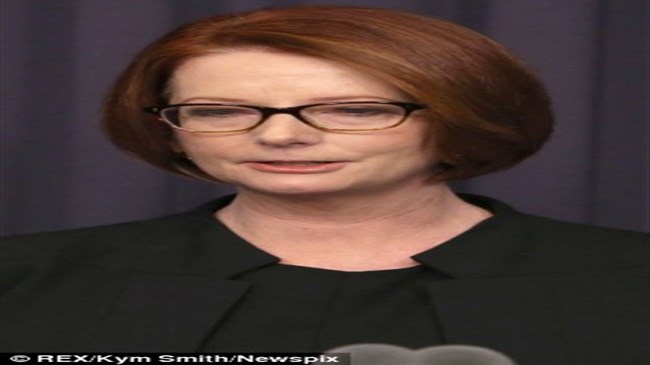
There are 260 million children and adolescents out of school internationally according to the Education Commission, a global organization of former prime ministers, academics and business leaders set up last year to campaign for investment in education, abc.net.au wrote.
This is attributed largely to poverty with parents unable to afford to send their children to school but also other factors such as discrimination based on ethnicity, caste or religion.
Education Commission data has forecasted that by 2030, half of the 1.6 billion young people in the world will not have secondary level skills, and will not be easily absorbed into a job market which is demanding higher skill levels.
Gillard said this was a crisis not just for the individual children missing out on school, but also at the global economy level.
"One of things we have learned is that we can overcome these problems if we try," Gillard told Reuters.
"This isn't the equivalent of saying let's go to Mars or let's go to Pluto. This isn't something that no human being has done before.
"It's not that at all. If every country was improving its education system as the rate of the top 25 countries — in their income band — then we would solve all these problems and be on track to have a learning generation with every child in school."
Gillard, who was speaking ahead of a two-day conference on children's rights in New Delhi, said it was imperative both domestic and overseas financing were made available as one of the first efforts to get children into school.
She said 20 percent of government budgets, or six percent of gross domestic product, would be an indication a country was trying to make a real difference to the education of children, yet many countries were failing to achieve that level.
According to the Education Commission, low- and middle-income countries' expenditure on education was $US1 trillion ($A1.3 trillion) in 2015, but should have been almost three times that, at $US2.7 trillion by 2030.
Gillard said foreign aid was also meager, with only three percent of overseas assistance going towards education.
The GPE has raised an average of $US525 million annually over the past two years, she said, but it required $US2 billion a year to do its work — advising developing nations on quality education plans, providing technical assistance and funds.
"The reality is that it has always been a tough environment to raise money for education," she said.
"Education is a pretty patient investment in quite an impatient world. People want to see quick results. It takes years to educate a child.
"But if this continues, we will see a generation which simply doesn't have the skills and capacities to make a life for themselves and the next generation of children will be less likely to survive infanthood, less likely to be vaccinated and less likely to go to school themselves."

Add new comment